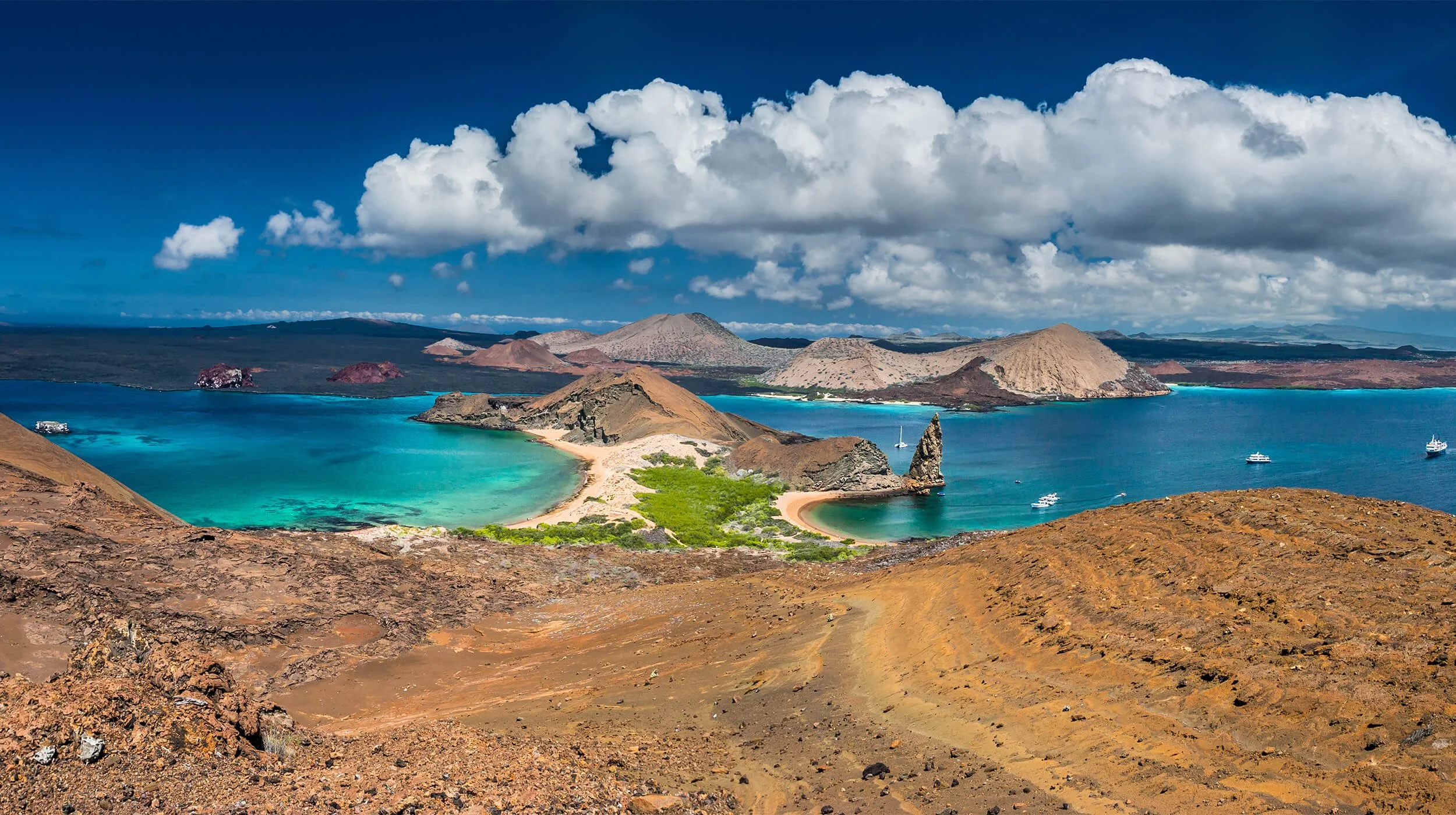A Safari at Sea: Exploring the Galápagos the Sustainable Way
The Galápagos Islands — long celebrated as a living laboratory of evolution — are a place where nature still calls the shots. Giant tortoises lumber through the highlands, sea lions nap on volcanic shores, and marine iguanas dive beneath the surf as if time itself has slowed. It’s a rare ecosystem where wildlife reigns supreme — and where responsible travel can make a meaningful difference.
A new era of ecotourism is emerging here, led by small-scale, conservation-focused voyages like the Galápagos Explorer, a 12-passenger expedition yacht launched by andBeyond. Designed to tread lightly on this fragile environment, the vessel combines scientific curiosity with sustainable luxury, offering travellers a “safari at sea” that captures the wonder of the islands while ensuring their protection for generations to come.
Exploring the Living Laboratory
Each island in the Galápagos archipelago tells its own evolutionary story. From the volcanic plains of North Seymour to the lush highlands of Santa Cruz, the landscapes — and their inhabitants — transform dramatically from one stop to the next. Visitors might encounter blue-footed boobies performing their famous mating dance, marine iguanas basking on the rocks in Christmas-hued scales, or albatrosses sweeping in from the cliffs of Española. Beneath the surface, snorkelers often share the water with sea turtles, penguins, and even hammerhead sharks.
This remarkable biodiversity is the result of millions of years of isolation, ocean currents, and volcanic activity. It is also what makes the Galápagos so delicate — and so deserving of careful stewardship.
Conservation at the Core
Though 97% of the islands are protected as a National Park, threats remain. Invasive species, overfishing, and poorly managed tourism can all tip the balance of these ecosystems. The Galápagos Explorer takes a different approach. By limiting capacity to just a dozen guests, the ship reduces environmental impact while allowing for more meaningful, educational experiences. With one naturalist guide for every six guests — the lowest ratio among ships in the region — every excursion becomes an opportunity to learn about conservation, ecology, and the interconnectedness of life on the islands.
The ship’s operations also reflect a deep commitment to sustainability. From supporting local suppliers and sourcing ingredients from the surrounding islands to offsetting its carbon footprint through indigenous tree planting on Santa Cruz, every element of the voyage is designed to contribute, not consume. Ongoing projects include marine conservation initiatives like the Galápagos Whale Shark Project, community empowerment through the Pescado Azul Women’s Association, and the expansion of Oceans Without Borders, a programme protecting marine habitats across the Southern Hemisphere.
Local Hands, Local Heart
One of the most meaningful aspects of this eco-cruise lies in its people. The crew — from chefs and guides to engineers and hosts — are proudly Galápagueño, offering guests an authentic window into island life. Local produce forms the basis of the menu, from freshly caught fish to seasonal fruits, while traditional dishes like seco de pollo are reimagined with care. This approach supports local livelihoods, preserves culinary heritage, and reduces the carbon miles behind every meal.
The Future of Responsible Exploration
To travel through the Galápagos is to witness nature’s brilliance — but also its fragility. Each encounter with a tortoise, a sea lion, or an iguana is a reminder that this balance depends on respect. Sustainable operators like the Galápagos Explorer show that it’s possible to explore without exploitation — to marvel at the natural world while actively helping to protect it.
As more travellers seek journeys with purpose, small-scale expeditions like this offer a glimpse into the future of travel — one where luxury is measured not by excess, but by impact.
Travel That Gives Back
At Journey, we believe travel should protect the very places that inspire it. Experiences like this Galápagos voyage are powerful reminders that sustainability isn’t about sacrifice — it’s about connection, curiosity, and care. By travelling consciously, supporting local communities, and choosing operators who prioritise the planet, we can all help ensure that the world’s most extraordinary destinations remain wild, thriving, and alive with possibility.
